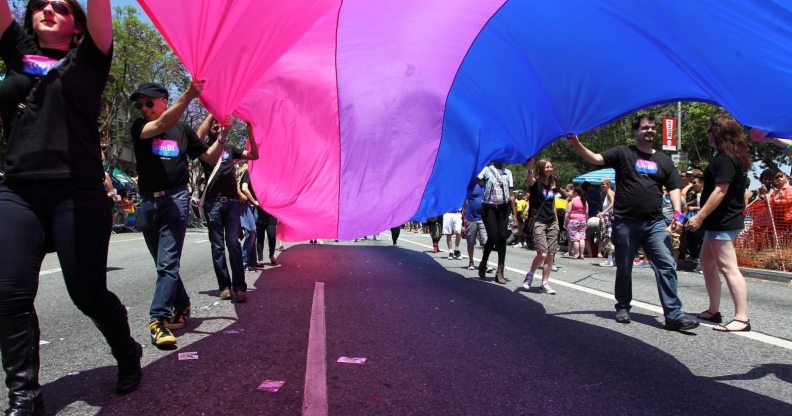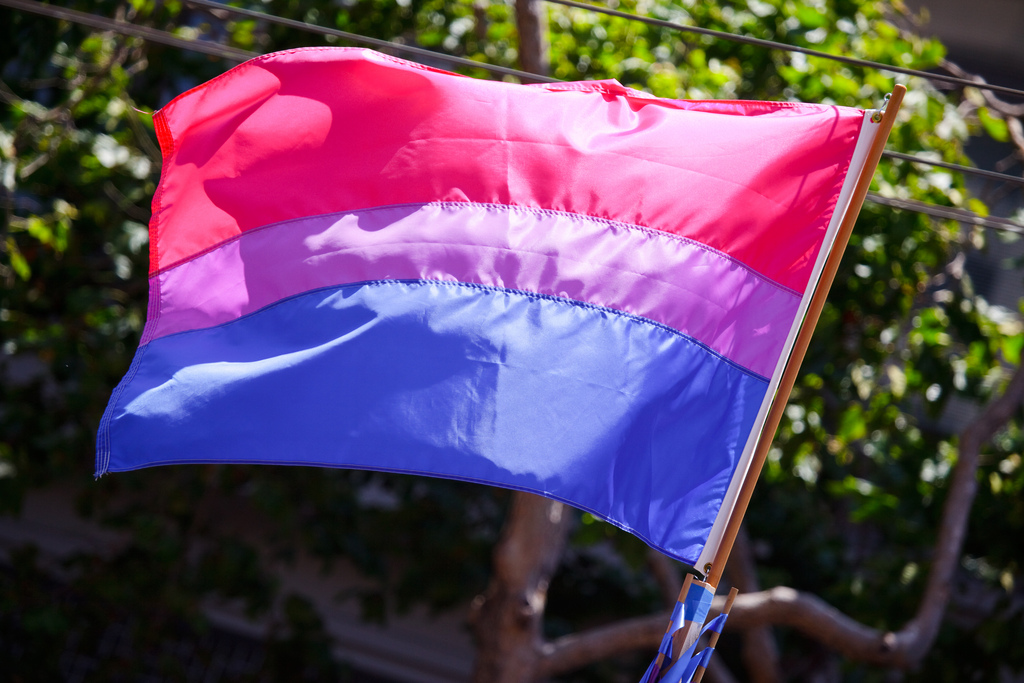Bisexuals less likely to be out than gay or lesbian people

The bisexual pride flag at Los Angeles Pride 2009. (David McNew/Getty Images)
Adults who identify as bisexuals are less likely to be out to important people in their lives than gay or lesbian people, a study has shown.
The research from Stanford University was analysed by Pew Research Center and shows that only 19 percent of bisexuals surveyed are out to most or all of the important people in their lives, compared with 75 of gay or lesbian people.
Just over a quarter (26 percent) of bisexual people said that none of the important people in their lives are aware of their sexuality, with only four percent of gay or lesbian people saying the same.
Among bisexual people who are married or in a relationship, 88 percent said they were with someone of the opposite gender, which could be because the same-sex dating pool is smaller than for opposite-sex relationships.
However, 43 percent said they were attracted to men and women equally and 12 percent said they were attracted mostly to people of the same gender.
Many bisexual people suffer from poor mental health due to biphobia, invisibility and erasure, another study found, especially those in opposite-sex relationships.

88 percent of bisexuals are in opposite sex relationships. (Getty)
Bisexuals in opposite-sex relationships can feel excluded from the queer community
“As a femme woman who is currently dating a man, many people I meet assume I am straight. This means that I can protect myself, to a degree, from being discriminated against because of my sexuality,” said journalist Laura Ingram in a piece for Australia’s Star Observer.
However, she said that coming out as bisexual can be “complicated and confusing.” She continued: “The pressure that comes with continually correcting people’s assumptions about your sexuality can be stressful and damaging.
“It also means that bisexual men and women that are dating someone of the opposite gender can feel excluded from the queer community.”

